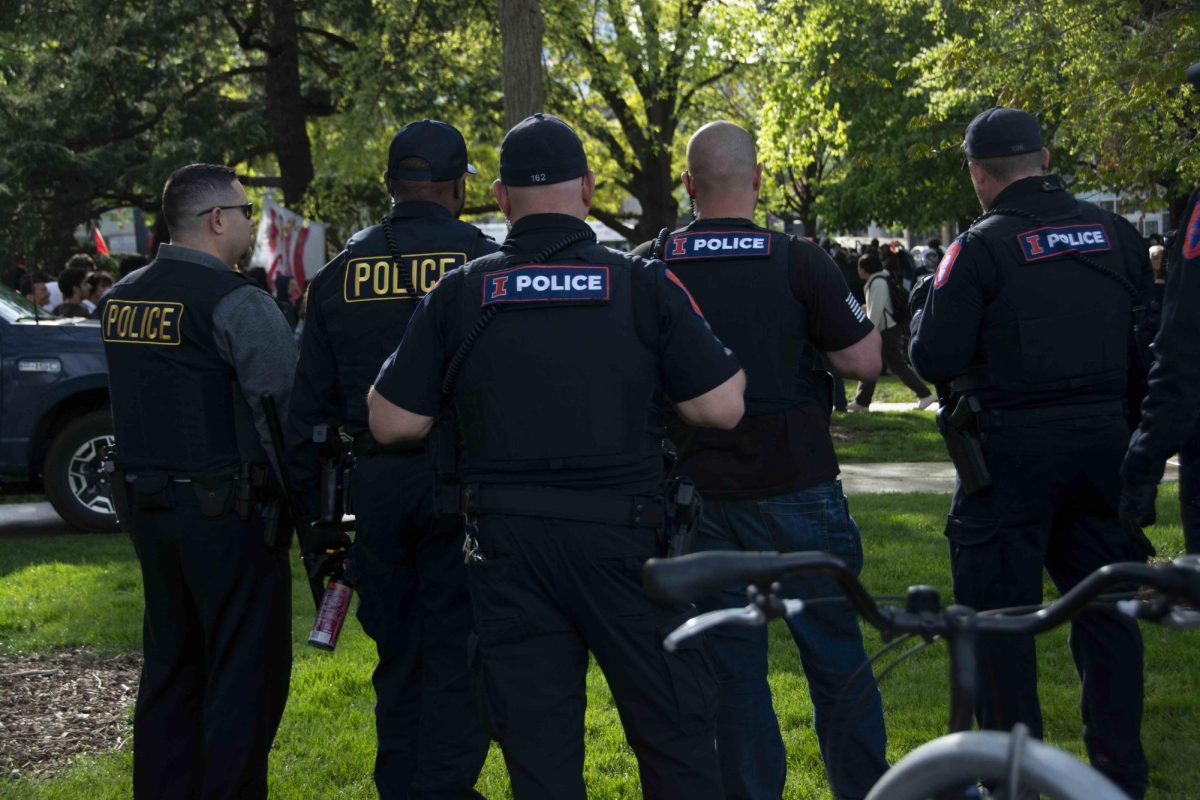Public agencies are failing to collect hundreds of thousands of dollars in parking tickets in the Champaign-Urbana area because of hurdles in keeping track of the tickets and pursuing parking scofflaws in the legal system.
About $500,000 in outstanding tickets issued between July 1, 2009 to June 30, 2010 have not been paid, according to an analysis by The Daily Illini of Champaign, Urbana and University parking systems in Oct. 2010. Included in this amount are unpaid citations that were voided, appealed, contested, warnings or courtesy tickets.
With furloughs and layoffs haunting employees, the three parking groups are now taking action to make their systems more efficient. Their fiscal year’s collection rates range from 77 to 88 percent.
Officials would not release the names of those who have not paid because those names are exempt under the state’s Freedom of Information Act.
But records do show that Urbana was unable to collect at least $89,000 in unpaid tickets issued fiscal year 2010. Champaign missed out on at least $190,000, including unpaid parking tickets that were voided, contested or warning tickets.
Get The Daily Illini in your inbox!
To boost its collection rate, Urbana began booting, or immobilizing, vehicles on Dec. 1, 2009 that had at least five outstanding citations that remained unpaid for 30 days. Champaign began working with its legal system more vigorously to go after its biggest offenders.
The University hired a collection agency because its current computer system could not retrieve records quickly or calculate its collection rate without writing a new computer program and running a query.
According to The Daily Illini, the University failed to collect over $269,000, or 23 percent of money from tickets issued last fiscal year. Included in that amount are unpaid citations that were voided, appealed or courtesy tickets.
Thus, University Spokeswoman Robin Kaler could not confirm the amount of unpaid parking tickets since the University cannot match records from the old and new parking systems’ software.
“We do record each (ticket), but the information isn’t easily pulled out of a database. For example, some people pay then appeal a fine, and the system simply doesn’t extrapolate those data easily,” she said.
To collect some of its outstanding citations, the University signed a one-year contract with a collection agency, Citation Collection Services, that was implemented in 2011, Kaler said. Discussions about possibly using a collection agency began in 2009 and under its current agreement, the University has the right to extend its contract for two more years, one year at a time. The University will pay Citation Collection Services a portion of the money it collects on unpaid citations.
Representatives from the collection agency directed all questions to Kaler.
With the new contract, up to 7,000 citations will be sent out to those who have not paid their University ticket in the past five years. The citations will warn individuals that their names will be sent to the collection agency unless they pay in 30 days. However, Kaler was unsure when the citations would be sent.
The University will continue to fine drivers who do not pay their ticket within 72 hours, she said. It also withholds students’ diplomas and transcripts and prevents drivers from receiving other parking services.
Kaler said the University polled other schools that used Citation Collection Services, such as the University of Texas-Austin and the University of Southern California. No other Big 10 school uses this agency.
Although Champaign and Urbana do not use collection agencies, Kaler said their parking systems are not comparable to the University’s since the cities have escalating fines. The University will increase its fine once while the cities can increase their fines multiple times on certain violations.
Champaign had a collection rate of 83 percent last fiscal year, although that number fluctuates by month because of the way the percentage is calculated.
To determine its collection rate, the city divides the base value collected that month by the base amount of citations issued that month, said Stacy Rachel, administrative services supervisor. This means that if someone paid their September ticket in January, the amount collected would be added to January’s totals.
Because of this formula, the city saw a 24 percent difference in the collection rate between months last fiscal year. The city saw a year-low rate of 76 percent in Sept. 2009 and a year-high rate of 100 percent in Jan. 2010.
Rachel said it would not be efficient to sort the collected money by the month the ticket was issued, and the numbers balance out over the course of a year.
To collect tickets, Champaign began using its legal department to help catch the biggest culprits. Additionally, the city boots cars that have at least five outstanding citations that remain unpaid for 30 days and will send the names of registered vehicle owners with 10 unpaid parking tickets to the Secretary of State to suspend their drivers’ licenses.
Across town, Urbana has collected 88 percent of the tickets it issued last fiscal year, said Elizabeth Beaty, office manager and parking administrator. The city also boots cars and sends names to the Secretary of State’s office for license suspension.
However, the city uses the amount of tickets retrieved to determine its collection rate, rather than the amount of money collected, Beaty said. Although both numbers are accurate, the city calculates its rate using tickets collected because its shows a more favorable number.
According to The Daily Illini, about 82 percent of collectable ticket money from last fiscal year was retrieved; 88 percent of outstanding citations were collected.
“Maybe I always do it with tickets because that’s how I learned, and it must have always looked better to the person who taught me,” Beaty said.




